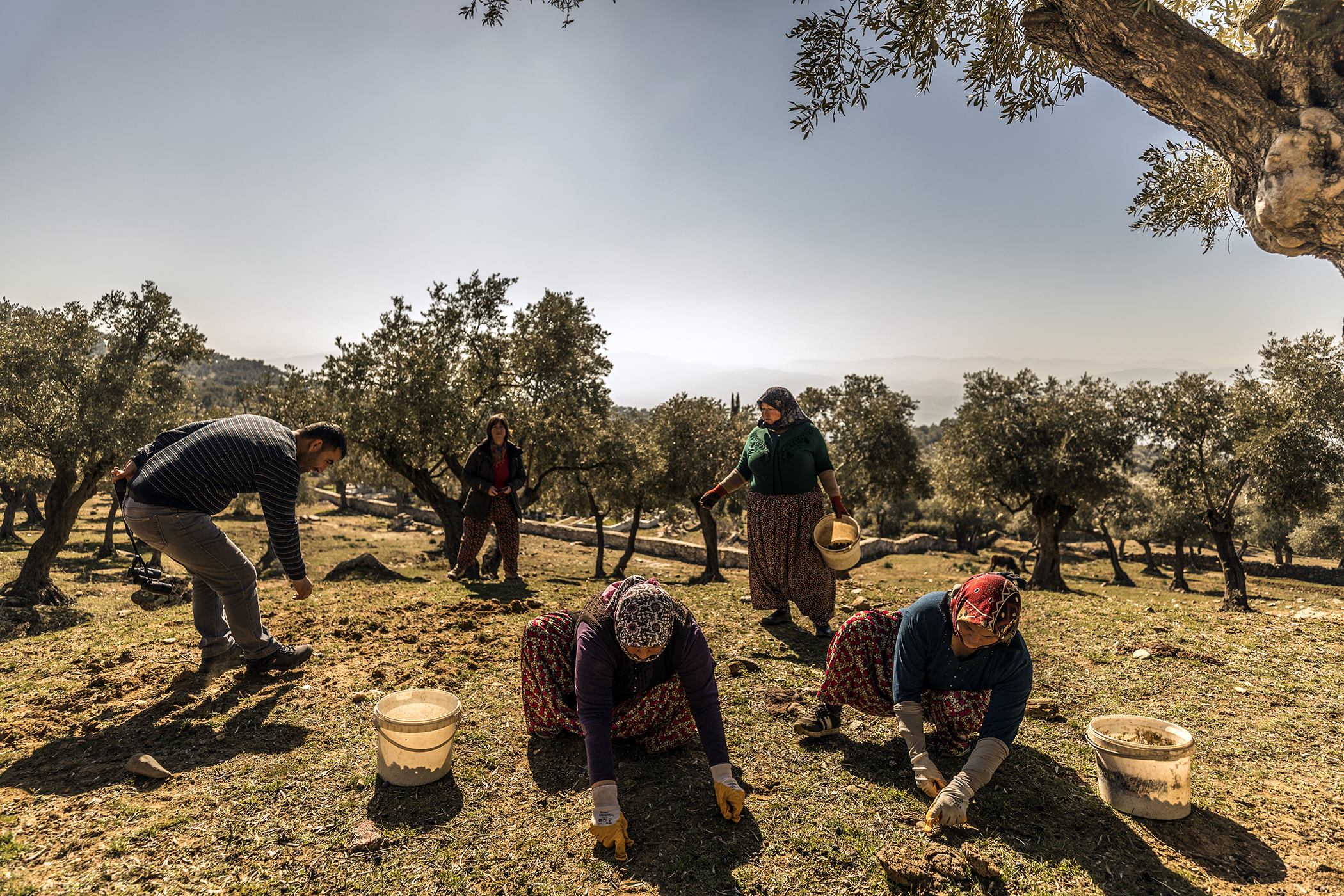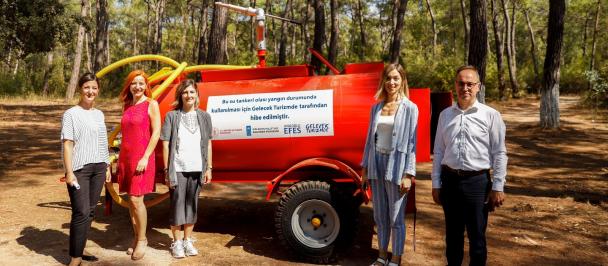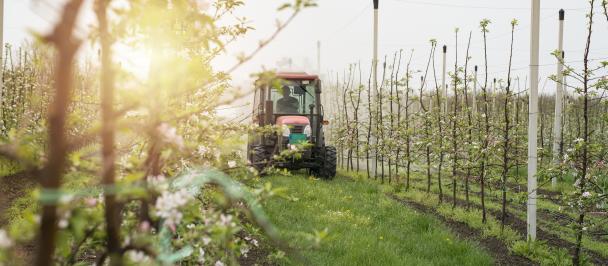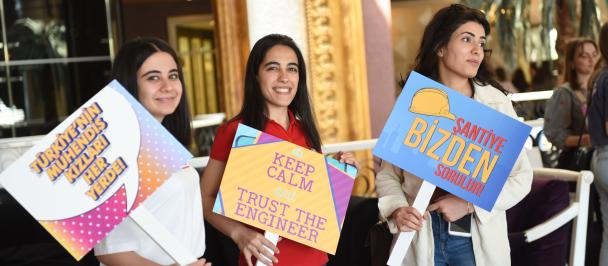ⒸRaziye İçtepe
Kaz Mountains and Edremit Bay are the two priority areas that will be covered within the scope of SGP Turkey’s 6. Execution Program (OP6). This prioritized area contains three key biodiversity areas namely Babakale- Assos Shores, Kaz Mountains, and Ayvalık. SGP supports biological diversity to be preserved and traditional production techniques to be pursued. The project area consists of the whole region starting from Edremit Bay to the south of Aydin – Mugla Mentese Mountains.
As part of this project, “Hand in Hand for Survival of Aegean Olive Pastures” program is implemented with the participation of SGP and Orhanlı Köyü Kültür Doğa Gençlik ve Spor Kulübü Derneği during 2016-2018.
“Olive pasture” is a new concept which does not take part in the literature yet. Background of this concept introduced by this program stems from the previous olive studies and observations of Orhanlı Köyü Derneği at the basin. Olive pastures are precious areas to preserve biological diversity, to support and continue traditional production techniques and to pursue intergenerational information flow.
Production techniques requiring minimum input and provoking no pollution to take an important place in nature conservation. Traditional olive cultivation is definitely one of these techniques by not requiring any input from the outside apart from man and animal power. Olive groves that are constituted by revealing wild olives called “delice” among maquis, household herbivorous such as goat, cow, and sheep plow trees regularly. While getting nourished, beasts also make smooth and fertilize the soil by clearing under the trees.
However, enabling wild animals to pass from these olive pastures which are not wired and not allowing regular pasturage led serious adverse effects. One of the most important tasks in olive cultivation is to clear under the trees. When regular pasturage is not allowed, this important task is carried out by agricultural machinery and chemicals. Cultivating the soil in such a way leads soil fauna and flora to be destroyed, annual herbaceous plants to be extinguished and in some instances, disease susceptibility of some of the trees as a result of a destroyed ecosystem. Separating olive pastures and animal husbandry is the root cause of these problems. Aegean olive pastures are excellent examples of rainfed agriculture which has a crucial role in climate change adaptation. Special architectural structures are developed for these olive trees which are cultivated by nothing but rainwater. Aegean olive pastures composed of local olive strains grafted by humans for hundreds of thousands of years are the most resilient agricultural areas.
There are number of threats that these precious areas are facing. These ancient pastures based on Aegean shores are at risk currently because of the factors like tourism, zoning, quarries and pits, solar and geothermal power plants, plantation of some olive strains that are strange, not specific to the region.
This study, aiming to stress the importance of olive pastures and threads currently faced also intends to provide a basis for future projects having similar objectives. During the first phase of the project, all endangered olive pastures of Aegean Region starting from Edremit Bay are scanned and map information is produced. Documentation containing olive pastures’ biological and cultural diversification is created. Both during and after the documentation stage, collective studies and face to face meetings are conducted with local communities. Face to face meetings with the local olive producers is the basis for increasing awareness of olive pastures. A guide containing valuable information on ancient olive pastures to increase awareness on fresh olive producers as well as practical knowledge as is also prepared.
While a “sole olive pasture concept” is considered as a starting point, during the project, it is discovered that there are different kinds of pastures. During field works and visits, it is identified that there are three different types of olive pastures; one is in Edremit Basin called Edremit – Ayvalık Olive Pastures, the other one is in Izmir Bay called Peninsula Erkence Olive Pastures and the last one called Mentese Mountains Memecik Olive Pastures which is in the south of Aegean Region. Olive strains living in these subgenres differs culturally from each other by means of olive processing and maintenance. These differences are distinct indicators of both cultural and bio-diversified prosperity.
A 4-minute short documentary is prepared and filmed during the project to record the valuable information gathered and to promote the importance of olive pastures to a wider audience and shared on social media channels.
In order to widen our increasing awareness on olive pastures strategy, training has designed and conducted in olive pastures basin. Consequently, 50 individuals having different backgrounds from all over Turkey had a chance to gather a deeper understanding on olive pastures through 3-days training program. This training program was completed in 2018. After SGP support is secured, the project team applied to Development Foundation of Turkey for olive pastures which is also selected as eligible for support. The main aim of the project is to constitute an olive pastures’ agriculturists network and to assist in local olive pastures’ farmers within the context of rural development. Studies covering these subjects will be completed in February 2019.
Endeavors on olive pastures, local branding and rural development to promote local producers are continuing across Orhanlı Valley. Yavas Dukkan, as being an excellent example of local branding, continues to market and sell “Tas Baski Zeytinyagi”, the olive oil obtained from the olives of the pastures of the valley and processed through traditional olive oil production techniques. As being a local branding and development center, Yavas Dukkan gives support to the studies across the region on olive pastures. While guaranteeing the sustainability of olive pastures projects, Yavas Dukkan also serves as a model of rural development for the other olive pastures. Biodiversity, folklore, and human also benefit from this cycle which feeds one another.

 Locations
Locations




